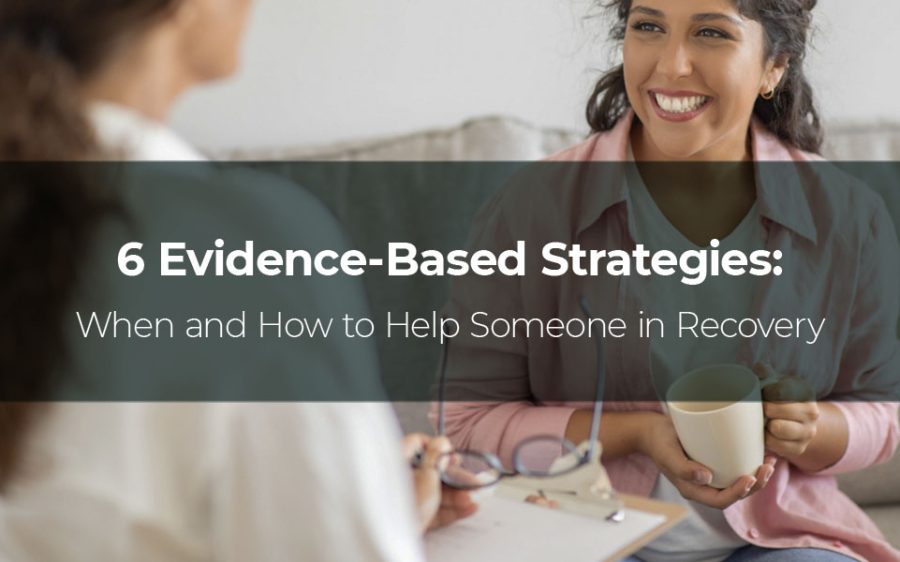
According to American Addiction Centers, around 22 million people who have had a substance use disorder (SUD) say they're in recovery. That's 73.1% of the roughly 30.5 million American adults who struggle with addiction. While it's amazing that so many adults are pursuing recovery, the road to an addiction-free life isn't always straightforward.
The National Institute on Drug Abuse reports that the relapse rate for SUDs is between 40% and 60%, meaning that a majority of people in recovery will relapse at least once. How can you and your loved ones avoid being part of that percentage? Using evidence-based strategies to support recovery can help you achieve an addiction-free life faster and with fewer relapses along the way.
Addiction has been defined as a disease by organizations like the American Society of Addiction Medicine (ASAM) and the American Medical Association (AMA). Because addiction changes a person's brain chemistry, healing is rarely simple. Understanding addiction as a chronic disease affects the way people treat it.
Stages of recovery from addiction include:
While it can feel good to plan lifestyle changes, evidence-based addiction treatments are more sustainable for long-term recovery. For example, saying you won't have another drink is an easy commitment to break. Having an accountability partner and going to counseling make it much easier to stay on track with your recovery goals.
These evidence-based strategies can help you plan for a successful recovery from addiction. However, it's important to note that none of these ideas can replace professional help, such as working with a counselor or addiction recovery center. The most effective treatment plan often combines several evidence-based approaches to create a safety net that keeps you on track.
CBT is a kind of goal-oriented therapy that can help people become aware of patterns in their thoughts and behavior. You and your therapist will work at identifying and challenging these patterns. Some applications of CBT for addiction recovery include:
Building an addiction-free life isn't just about avoiding a relapse. You can also use these tools to open up a whole new world of healthier mental, emotional and physical choices. Working with a CBT therapist can help you heal deep emotional wounds and expand your mind for a more peaceful, fulfilled life.
Contingency management is a type of behavioral therapy that offers physical rewards for behavioral choices. The goal is to increase the frequency of healthy choices by making them exciting and rewarding. When combined with other therapies like CBT, CM can help people with substance use disorders.
Examples of CM include:
Rewards shouldn't be monetary, since that could empower individuals to support their substance disorder. Focusing on social, non-cash incentives is the most effective form of this therapy. Many people who aren't recovering from substance use use reward systems to motivate themselves toward good behavior — it's an easy way to stay focused and feel good about their choices.
This evidence-based behavioral therapy identifies environmental and social triggers for substance use and helps people build new habits. Being surrounded by usual patterns can make it difficult to change behavior. Often, removing yourself from that environment or significantly changing your environment is essential for recovery.
The goal of CRA is to make a substance-free life more rewarding than continuing your addiction. Changes can include replacing substance use with rewarding social and vocational experiences. CRA teaches communication and problem-solving skills and helps you set specific, time-bound goals. This kind of therapy is tailored to your specific life, personality and goals.
Detoxing from a substance like alcohol, opiates or benzodiazepines can be extremely uncomfortable. In some cases, it can also be dangerous — side effects may include heart palpitations, hallucinations, dry retching and more. When you detox under medical supervision, you can have peace that your symptoms will be monitored and your doctors may use medication to ease the detox process.
Some individuals also find success using FDA-approved medication to replace dangerous drugs. For example, your doctor may prescribe you methadone, buprenorphine or naltrexone. These drugs can help manage cravings without the dangerous side effects of opioids. The long-term goal is to taper off these drugs as well.
Relationships are how people heal. When you attend a peer support group, the relationships you form will help you stay accountable and improve your life. Examples of peer support groups include Alcoholics Anonymous (AA), Narcotics Anonymous (NA) and Self-Management and Recovery Training (SMART) Recovery. These official groups have programs that can help you stay on track during your recovery journey.
Opening up about addiction can be extremely difficult. You will be amazed at the compassion and support you find when you attend a peer group. Consistent participation can be transformative and strengthen your resolve to stop abusing substances and build a life you're proud to share with others.
Because relapse is possible, it's important to create a plan to prevent it. While it may be discouraging to relapse after making progress toward an addiction-free life, having a relapse prevention plan can help you prepare. Strategies include:
If you or someone you love is ready for addiction treatment, allow the experts at Diamond House Detox to support your recovery. We offer both residential and outpatient programs, so you can find the best fit for your needs. Our approach is holistic, focusing on the needs of the whole person and not just treating addiction in isolation.
We understand the complexity of co-occurring disorders and provide a combination of therapy and addiction treatment to help people heal. Our care is personal, comfortable and built on evidence-based treatments like those discussed in this article. Contact us today to learn more about our programs and take another step toward an addiction-free life!